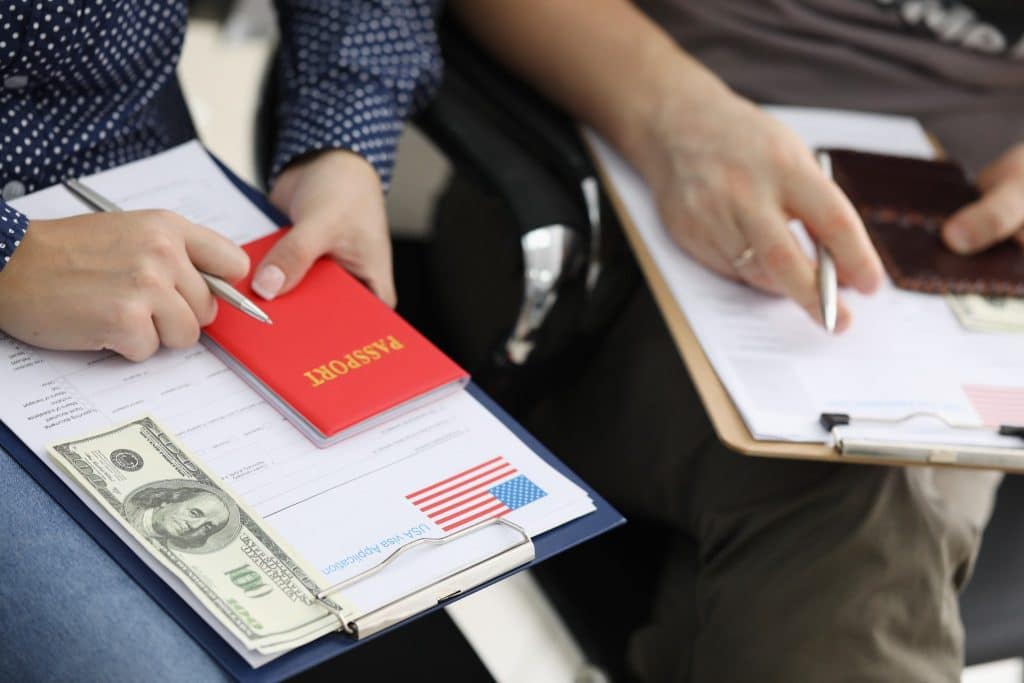Sun, sea, siestas; and strong Wi-Fi. If you’re dreaming of living in Barcelona, Valencia, Málaga, or the Canaries, start with a clear map of spain digital nomad visa requirements. In 2025, Spain’s “international telework” route lets non-EU remote workers live in Spain while working for companies abroad, and you can often bring family too.
This guide breaks down spain digital nomad visa requirements, taxes, paperwork, and step-by-step logistics so you can plan with fewer surprises and more tapas. We’ll cover who qualifies, how much income you need, how to apply inside or outside Spain, what to expect for social security, and the tax regime options that matter most once you cross the 183-day line.
2025 snapshot: the essentials
Here’s the short version of spain digital nomad visa requirements. You’ll either apply at a Spanish consulate (visa up to 12 months) or enter Spain legally and apply there for a residence permit (often up to 3 years). Both options target remote work that can be performed using digital tools for employers or clients located outside Spain. Renewals can extend the total stay, usually up to 5 years, as long as you keep meeting spain digital nomad visa requirements and file renewals on time.
For the most current procedures and official forms, check the Spanish Ministry of Foreign Affairs consular portal.
While you prepare, bookmark destination ideas for weekend trips; Spain makes it easy to hop around once you’re settled. For inspiration beyond the usual hotspots, browse Epic Destinations and start a short list.
Who qualifies (employees, founders, freelancers)
Employees. One core pillar of spain digital nomad visa requirements is an existing employment relationship with a foreign company. Most applicants show at least three months of history with their employer and a letter authorizing remote work from Spain.
Freelancers and founders. If you’re self-employed, spain digital nomad visa requirements ask you to prove ongoing foreign clients or an operating company outside Spain (commonly at least one year old). Freelancers may work with Spanish clients, but only up to a small portion of total activity, typically around 20% of income.
Qualifications. A degree helps; otherwise, three years of relevant experience usually meets the skills requirement embedded in spain digital nomad visa requirements.
If you’re still comparing countries and cost lines, skim real-world saving strategies in On a Budget to sense how your monthly burn might look once you land.

Income and financial means
Money proof sits at the heart of spain digital nomad visa requirements. Spain pegs the threshold to the national minimum wage (SMI). For a solo applicant, the bar is commonly set at 200% of SMI per month. Dependents raise the requirement: 75% of SMI for the first and 25% for each additional family member. Bring consistent evidence: recent payslips, contracts, and bank statements. Clean, consistent numbers make spain digital nomad visa requirements far smoother.
Practical tip: prepare a short cover note that explains your income streams line by line. It helps officers connect the dots fast and reduces back-and-forth requests. You can check official SMI updates at the Spanish Labor Ministry site.
What kind of work is allowed
Another major thread in spain digital nomad visa requirements is where your income originates. If you’re an employee, the employer must be outside Spain. If you’re freelance, Spanish clients are generally limited to a slice of your overall income, while your main activity should remain foreign-sourced. Roles that fit best are those deliverable via computer and telecom systems: software, data, design, marketing, content, support, operations, consulting, and more.
If you’re optimizing your remote setup, check simple gear and packing tweaks in Travel Hacks to keep your office light and your luggage under control.
Documents checklist
While procedures vary by consulate and region, most spain digital nomad visa requirements include:
- Passport valid for the full period.
- Employment or client proof: contract(s), employer letter authorizing remote work, and at least three months of employment or invoices if freelance.
- Company evidence: employer registration or documents showing your business has operated at least one year.
- Financial means at the 200% SMI threshold (plus dependents as required).
- Private health insurance authorized to operate in Spain, with no gaps or co-pays that conflict with local rules.
- Criminal record certificates for each country you lived in during the last five years; translations and legalizations as required.
- Social security planning documents (see next section), such as an A1 certificate if applicable.
Create a tidy cloud folder with subfolders matching the list. Officers love clearly labeled PDFs, and it makes returning to your spain digital nomad visa requirements for renewals a breeze.
Social security basics
Social contributions sit next to spain digital nomad visa requirements but follow their own rules:
- Employees often rely on an A1 certificate from the home country to remain covered there for a limited time under bilateral or EU rules. Ask HR to start this early.
- Freelancers usually register as autónomo and pay monthly into the Spanish system (RETA). Contributions scale with declared income, and you’ll invoice clients with Spanish tax requirements in mind.
Your private policy remains essential at the start because spain digital nomad visa requirements demand it. Once you’re contributing locally, you can access Spain’s public system; timing depends on your category and region.
Apply from abroad vs. inside Spain
You can follow spain digital nomad visa requirements in two ways:
From abroad. Apply at a Spanish consulate. You’ll receive a visa (often up to 12 months) that lets you enter, settle, and then convert to a longer residence card once in Spain.
Inside Spain. If your nationality allows visa-free entry or you hold a valid Schengen visa, you can apply in Spain for a residence permit that is typically issued for up to three years from the start. Many applicants choose this route for speed or logistics.
Both paths count toward your total years as long as you keep satisfying spain digital nomad visa requirements and renew on time.

Taxes 101: residency, rates, and the special expat regime
Meeting spain digital nomad visa requirements is separate from tax rules. Spain treats you as a tax resident if you spend more than 183 days in the country during a calendar year or if your primary economic interests shift there. Tax residents are taxed either under the regular progressive system (on worldwide income) or the special expat regime (often nicknamed the Beckham Law), which — if you qualify and elect it — can apply a flat rate to Spanish employment income and exclude much foreign income from Spanish tax for a limited period.
Deadlines matter. You usually decide on the special regime shortly after becoming resident; miss the window and you default to the standard system. Whatever you choose, keep track of invoices, payroll reports, and days in country. A clean paper trail complements your spain digital nomad visa requirements and prevents headaches at renewal time.
General note: this is planning-level information; talk to a qualified adviser for specifics.
Bringing your family
Family joins are baked into spain digital nomad visa requirements. Spouses or registered partners, dependent kids, and sometimes dependent parents can accompany the main applicant. Remember the increased income minimums: 75% of SMI for the first dependent and 25% more per additional dependent.
Carry legalized marriage and birth certificates with certified translations as required. For schooling, many families start with bilingual public options and later decide between concertado or private schools once they know their neighborhood.
Where to land and how to budget
Choosing a base often decides your monthly burn. Madrid and Barcelona bring international communities and flight connections; Valencia and Málaga serve beach-city balance; Las Palmas and Santa Cruz offer island life and strong nomad scenes. A calm approach is to rent short-term at first, explore neighborhoods, then sign a longer lease.
You can compare city-by-city costs and community data on NomadList’s Spain pages.
If you want a sense of city-by-city vibes and seasonal ideas, the Digital Nomad section collects community-oriented guides that pair well with spain digital nomad visa requirements planning. Prices shift with season and neighborhood, but you’ll stretch euros with neighborhood markets, monthly transit passes, and co-working memberships that include coffee. Simple habits keep costs predictable while you navigate year one.

Common mistakes to avoid
Build your checklist around spain digital nomad visa requirements and avoid these snags:
- Submitting health insurance that isn’t authorized to operate in Spain.
- Forgetting the employer’s remote-work authorization letter or the three-month employment proof.
- Over-relying on Spanish clients if you’re freelance; keep Spain-sourced income to a minority share if your province requires it.
- Skipping translations and legalizations for criminal records and civil docs.
- Waiting too long to choose between the standard tax system and the special expat regime.
Step-by-step: from idea to arrival
Use this flow to navigate spain digital nomad visa requirements without getting lost:
- Pick your route. Decide between consular visa abroad or residence application in Spain.
- Secure employer or client paperwork. Contracts, the three-month history, and a remote-work letter for employees; signed statements from clients for freelancers.
- Calculate income thresholds. Confirm your monthly minimum for solo or family applications.
- Buy compliant private insurance. Must be valid in Spain and cover the full period.
- Order criminal records. Start early; add legalizations and sworn translations where required.
- Plan social security. Ask HR for an A1 certificate if employed; research autónomo setup if freelance.
- Submit and track. Some files move quickly once complete; keep PDFs organized.
- Land and register. Get your residence card, register your address, and set up invoicing if needed.
Your 2025 move, simplified
Spain is friendly to remote workers who plan both paperwork and money flows. Anchor your process on spain digital nomad visa requirements: income linked to SMI, foreign-sourced work, clear contracts, proper insurance, clean background checks, and honest timelines. Pair that with a tax plan that matches your situation, watch your day count, and keep a tidy folder for renewals.
When the admin is handled, the best parts remain: morning cortados, coastal walks, evening markets, and a rhythm that lets your workday and travel plans share the same calendar — all in Spain, on your terms. When you need a mental break from forms, the Viral Voyage homepage is a good jump-off for route ideas and seasonal inspiration.



